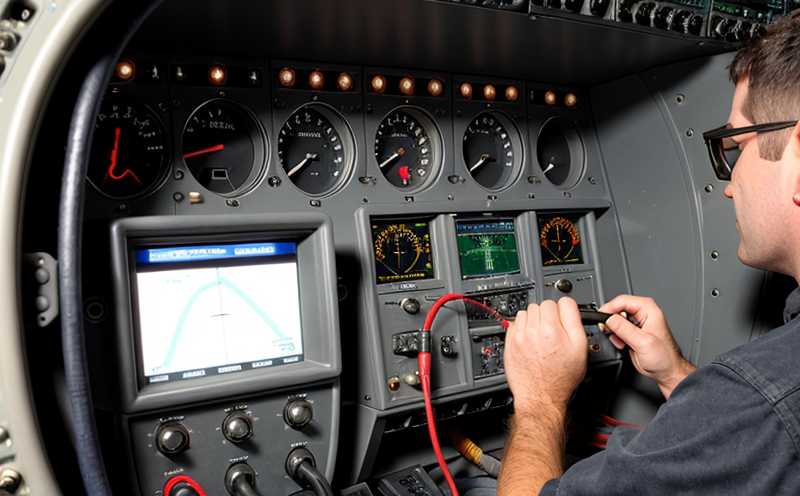MIL-STD-810G Salt Fog Testing of Avionics Enclosures
The MIL-STD-810G series of environmental testing methods is a comprehensive set of guidelines designed by the United States military to ensure that equipment and components meet strict standards for performance in various environments. Among these tests, salt fog testing is particularly important for avionics enclosures due to their exposure to harsh maritime conditions. This test evaluates how well an enclosure can withstand corrosive salt spray, which is a critical factor given the salty environment often found near coastal airports or naval bases.
The primary objective of this service is to simulate real-world conditions that could affect avionics components and ensure their reliability in military applications. Salt fog testing typically involves exposing specimens to a controlled atmosphere containing aerosolized salt water vapor, which simulates the corrosive environment encountered by equipment deployed near bodies of saltwater or exposed to other forms of marine exposure.
The process begins with thorough preparation of the avionics enclosure. This includes cleaning and degreasing the specimen to ensure accurate results. Once prepared, the enclosures are placed into a specialized test chamber where they undergo a series of cycles designed to mimic environmental conditions. These cycles may include temperature variations, humidity levels, and salt fog exposure.
During testing, the enclosure is subjected to a controlled environment that closely replicates actual maritime conditions. The duration and severity of the exposure depend on the specific requirements outlined in MIL-STD-810G. After the test cycle is complete, the enclosures are inspected for any signs of corrosion or degradation. Any deviations from expected performance indicate potential issues with the design or materials used.
The results of this testing are crucial for ensuring that avionics components meet military standards and can perform reliably under challenging conditions. This service not only helps in meeting regulatory requirements but also enhances customer confidence by providing robust, tested products. The outcome of such testing is typically detailed in a comprehensive report that includes all test parameters, specimen preparation steps, instrumentation used, and the final results.
Compliance with MIL-STD-810G ensures that manufacturers meet stringent quality standards set forth by the U.S. military. By adhering to these guidelines, we provide clients with peace of mind knowing their products have been rigorously tested to ensure longevity and reliability in demanding environments.
Quality and Reliability Assurance
- Consistent Compliance: Ensuring all tests adhere strictly to MIL-STD-810G standards.
- Advanced Instrumentation: Utilizing state-of-the-art equipment for accurate measurements and analysis.
- Expertise: Leveraging experienced staff with in-depth knowledge of avionics and military specifications.
- Comprehensive Reporting: Providing detailed reports that include all test parameters, specimen preparation steps, instrumentation used, and the final results.
Customer Impact and Satisfaction
The success of our MIL-STD-810G salt fog testing service lies in its ability to directly impact customer satisfaction by ensuring that avionics enclosures are robust, reliable, and meet the stringent requirements set forth by military standards. This service helps customers achieve compliance with regulatory bodies such as the U.S. Department of Defense, thereby reducing the risk of non-compliance penalties.
By providing thorough testing and detailed reports, we enable our clients to make informed decisions about their product designs, ensuring they meet or exceed expectations in terms of durability and performance. This not only enhances customer confidence but also strengthens brand reputation by delivering high-quality products that can be trusted under challenging conditions.
Use Cases and Application Examples
| Application Example | Description |
|---|---|
| Aircraft Avionics Enclosures | Testing enclosures for aircraft used near coastal airports to ensure they can withstand salt fog and other corrosive elements. |
| Military Communication Equipment | Evaluating the durability of communication devices exposed to harsh maritime conditions during deployment. |
| Naval Avionics Systems | Ensuring systems on naval vessels can operate reliably in salty environments and withstand salt fog testing. |
| Air Traffic Control Equipment | Testing components used at airports near bodies of water to ensure they are resistant to corrosion from salt spray. |





